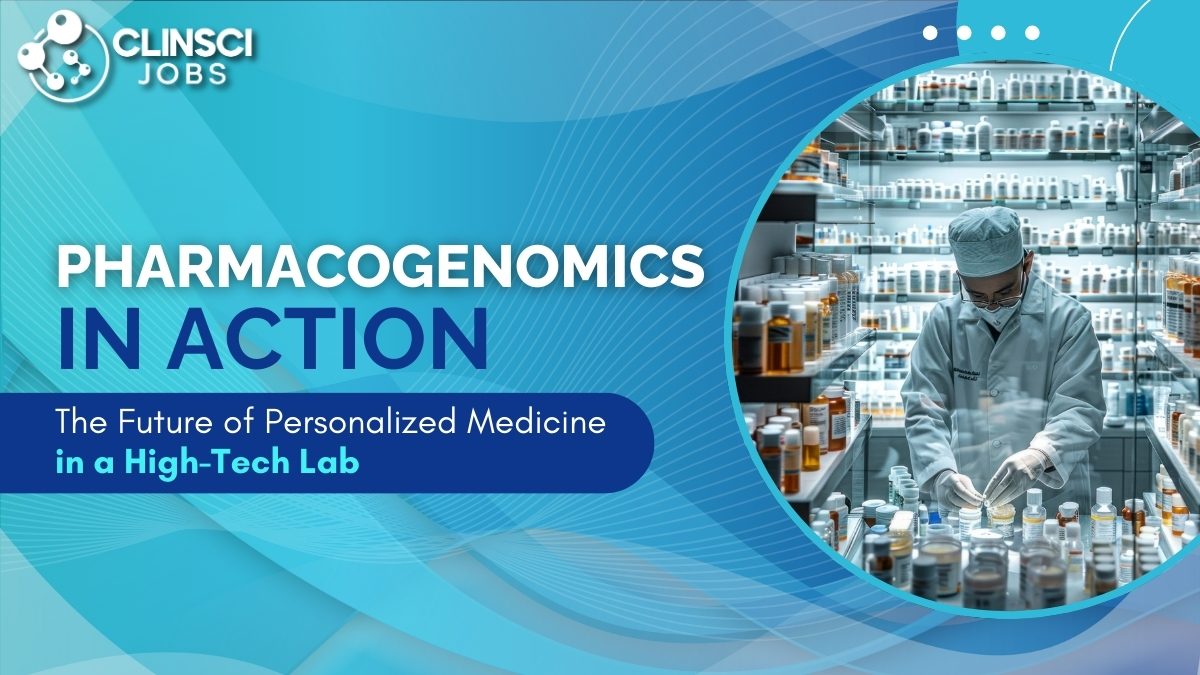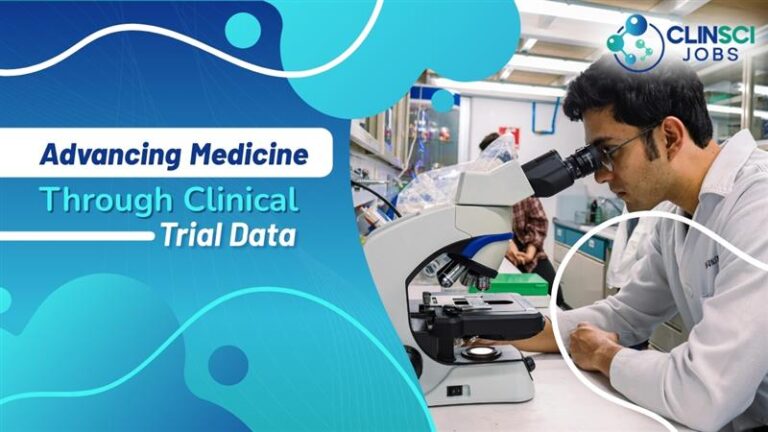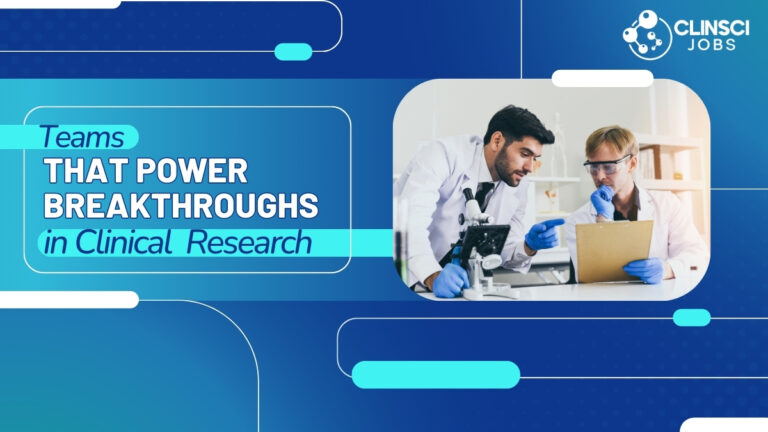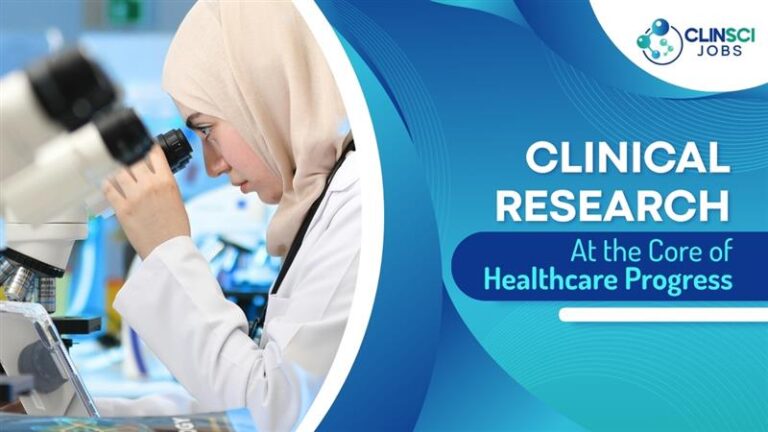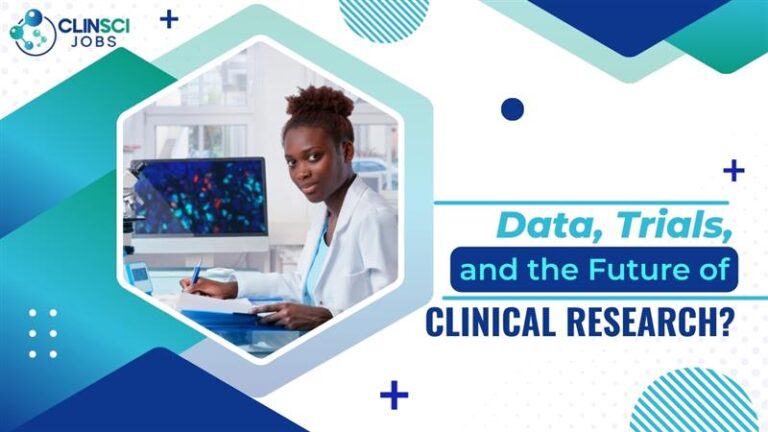Table of contents ▸
Introduction
Pharmacogenomics has triggered a major paradigm shift in the transformation of healthcare as a means to amalgamate genetics and medicine. Novel pharmacogenomic science is embarking upon personalized medicine, which transforms the very essence of clinical pharmacology pertaining to drug design and administration. Integration of pharmacogenomics, thus genetic information-helps make individualized treatments that increase drug efficacy while decreasing side effects against an established backdrop of conventional bulk approaches. The futuristic promise of this field stands for revolutionary changes in healthcare in past-simple terms, matching therapies to individual patients’ genotypes for safer and efficacious outcomes. The blog discusses the future of pharmacogenomics and its changing paradigms in personalized medicine with tremendous implications for professionals in clinical science. By Pharmacogenomics, the advancing era is now for clinicians to deliver precision healthcare with innovations that transform patient management. This makes it a thrilling time for clinical science professionals engaged in cutting-edge research and applications to usher in the next generation of medicine.
Understanding Pharmacogenomics and Its Role in Clinical Science
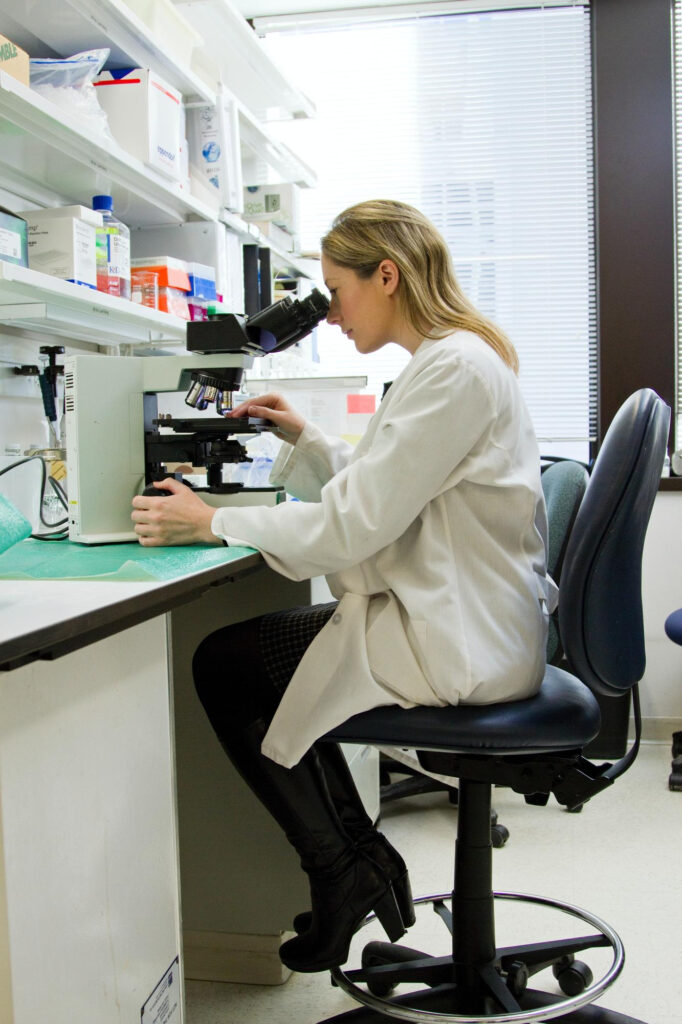
Pharmacogenomics is how an individual’s genetic character affects his/her response to a drug. This blending of pharmacology with genomics gives clinical scientists the power to customize a treatment plan, the very essence of personalized medicine. With pharmacogenomics, research and clinical professionals can set appraisals for drug efficacy and the potential for drug adverse effects by means of genetic markers. Genetic variation may affect how a patient metabolizes the drug, thus allowing for fine-tuning of drug-dosing schedules in order to maximize therapeutic outcomes.
Pharmacogenomics is generally impacting the practice of clinical science in the areas of oncology, cardiology, and psychiatry. With the identification of specific genetic markers, clinical scientists could recommend certain treatments based on their expected efficacy and lower risk of adverse reaction. The continued advancement of pharmacogenomics will broaden its applications in clinical science and provide opportunities for future innovations in personalized medicine to answer the future demand for manpower.
Practical Applications of Pharmacogenomics
The advancement of pharmacogenomics is translating directly into clinical science in other therapeutic areas. In oncology, genetic tests identify mutations that guide targeted therapies, positively affecting patient survival rates. In cardiology, pharmacogenomics dictates the use of anticoagulants like warfarin, whose genetic variations will tell which dose is best. These are examples of how clinical science is enhancing patient care by converting pharmacogenomics into applied personalized medicine.
These developments establish evidence of the application of genetics to treatment, benefiting from clinical safety toward clinical efficiency. Pharmacogenomics will even help get the right antidepressant for patients, since the latter will only receive medicines according to their genetics. As more and more clinical trials bring in genetic information, pharmacogenomics applications will grow, thus intensifying the establishment of its role within evidence-based medicine.
The Future of Personalized Medicine Through Pharmacogenomics

The future of pharmacogenomics holds great promise for personalized medicine and dramatically reshapes the field of clinical science. Cutting-edge technologies, including CRISPR and last-generation sequencing, are making genetic analysis significantly faster and cheaper. Such tools empower clinical science professionals to create highly individualized treatment plans on a larger scale, thus making personalized medicine available to all populations worldwide.
Artificial intelligence (AI) is helping greatly to transform pharmacogenomics. AI algorithms could have the ability to handle such large datasets of genetically characterized patients and compare genetic differences identified in subjects with similar patterns of drug response. Such combined processing of pharmacogenomics and AI would serve to speed up progress through clinical science innovations in personalized medicine on complex diseases such as Alzheimer’s, highly rare genetic disorders, and autoimmune diseases. They will turn personal devices and health apps into pharmacogenomics databases, which will help to personalize even more patients’ healthcare aspects.
The Challenges and Opportunities in Pharmacogenomics
While pharmacogenomics has great potential for clinical science, it also presents various challenges. These include the establishment of uniformity in genetic testing standards, affordability, and consequent access to personalized medicine, and the reduction of discrepancies in health care delivery. Ethical issues, such as those regarding protecting privacy and obtaining informed consent, also take centre stage. Despite these challenges, they offer opportunities for the expansion of clinical science professionals’ leadership in shaping policy, enhancing education, and promoting technological progress related to pharmacogenomics.
The aforementioned challenges call for international collaborations to ensure that all populations equally benefit from pharmacogenomics innovations.
Moreover, there should be training programs for health providers to build human resources proficient in interpreting genetic data and applying the same clinically. In overcoming these challenges, the full transformative capacity of pharmacogenomics will be unleashed on modern clinical science.
Opportunities for Clinical Science Professionals
Pharmacogenomics opens the door to numerous careers in clinical science. With its growth, genetic counselling, bioinformatics, clinical trial design, and regulatory science roles are expanding. Those trained in pharmacogenomics will lead developments in drug development, patient care, and healthcare policy, placing themselves in the vanguard of clinical science innovation.
Conclusion
The next future for pharmacogenomics is personalizing medicine with unprecedented access in clinical science. Making optimal use of genetic insights, professionals can deliver treatments that are safer, more effective, and tailored to individual needs. Such challenges notwithstanding, pharmacogenomics, AI, and genetic technologies will bring forth innovations that will globalize personalized medicine. It is an exciting time for clinical science practitioners to mould the future of healthcare through pharmacogenomics. Designing collaborations between academia and industry with healthcare systems will keep redefining patient care in pharmacogenomics.
Follow us on Social Media: LinkedIn | Facebook | Twitter | Instagram

